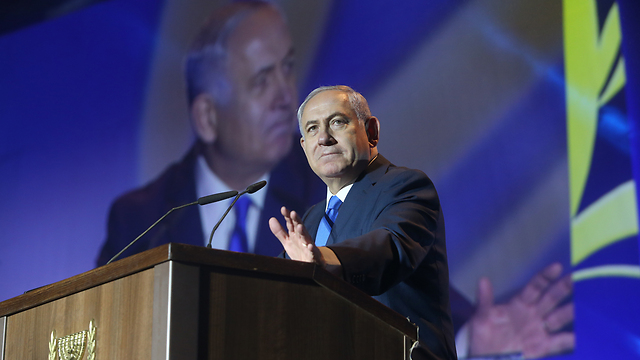Op-ed: It is in our hands to decide whether to create a reality in which a state ceremony in Gush Etzion is a unifying event marching Israel towards a future that realizes the Zionist vision, or a divisive event marching Israel towards its end as the Jewish people’s democratic state.
Gush Etzion will be an inseparable part of the State of Israel in any peace agreement reached through negotiations, and according to any outline for a settlement. That is indisputable and has been indisputable in all the rounds of talks on a permanent agreement between Israel and the Palestinians.
The Israeli society, however, is split over the future of the territories. As for the West Bank’s legal status according to international law, the Supreme Court ruled that “Judea and Samaria are held by Israel under military occupation or belligerent occupation. A military government, led by a military commander, has been established in the area. The military commander’s power and authority are granted by the rules of public international law regarding belligerent occupation.”
These are likely the reasons why the alleged state ceremony celebrating 50 years since Israel captured the West Bank was boycotted by the Supreme Court chief justice. More importantly, these are the reasons why not a single Israeli government has annexed the Judea and Samaria territories.


The fact that Gush Etzion is located in an area which isn’t under Israeli sovereignty—even under Israeli law—presents the ceremony, celebrating 50 years since “the liberation of the territories,” in a grotesque light: For 50 years, the Knesset has avoided applying Israeli sovereignty to the area whose “liberation” is being celebrated.
Moreover, the Supreme Court has allowed the settlement enterprise to exist by legally leaning on the territories’ temporariness. But when the State of Israel celebrates the 50th anniversary of the territories’ liberation, it conveys a message to the entire world that Israel’s control of the territories is permanent, thereby undermining the ruling allowing the settlement’s existence.
The international legal angle is, of course, just a reflection of the public-national question we have been dealing with for generations. The Israeli public is struggling with the issue of the territories’ fate, which is part of a complicated decision involving security issues, our relations with our Palestinian neighbors and our international standing. While this is a very difficult decision for the Israeli society, which has been debating the issue for 50 years now, it doesn’t bother the current Israeli government, which lives on factionalism and incitement, to celebrate a strongly disputed issue in a “state” ceremony.
The court is indicating to the government and to the Knesset that seeing the settlements as part of the state requires a law annexing the territories, like in the case of the Golan Heights and east Jerusalem.
But whoever wants the State of Israel to be the democratic state of the Jewish people must decide: Pursuing two states for two people is the way to maintain the State of Israel’s character and security in accordance with the Zionist vision, rather than devious PR tricks. Whoever wants to save the settlement enterprise must stick to the main settlement blocs, where the vast majority of settlers are already living today, and even annex them if required, and let go of most of the West Bank, which will never be part of the Jewish-democratic State of Israel.
From a political and diplomatic aspect, Israel must declare that it has no sovereignty claims east of the security fence and in the Palestinian villages that have been annexed to Jerusalem. As a result, Israel won’t work to expand the settlement in those territories and will only build in the areas west of the security fence, in Jerusalem’s Jewish neighborhoods or in the existing settlement blocs. It must move from maintaining the existing settlements and taking root everywhere to shaping reality and setting a border, if only temporary, around the main settlement blocs.
Until the permanent agreement is reached, there will be no change in the IDF’s deployment and freedom of action in Judea and Samaria. Thus, Israel will start leading a reliable and sincere diplomatic move, which will move the parties towards a reality allowing a separation into two states ahead of a permanent agreement, while establishing a durable Palestinian state. Gradual and continuous progress towards a reality of two states, through independent and constructive interim steps, will lead to stability and normalization over time, and might make a regional permanent agreement possible.
The area over which Israel has no sovereignty claim will be the minimum land for the establishment of a Palestinian state—the entire West Bank territories and Gaza, excluding the settlement blocs. The settlers living on these lands (who make up about 20 percent of all settlers beyond the Green Line) will be able to vacate as part of a law for voluntary evacuation and compensation, which will actively reflect the Israeli declaration on the future sovereignty of the territories.
It is in our hands to decide whether we want to create a reality in which a state ceremony in Gush Etzion is a unifying event marching Israel towards a future that implements the Zionist vision, or a divisive event marching Israel towards its end as the Jewish people’s democratic state. A governmental policy based on the aforementioned basic guidelines will make it possible to hold the ceremony in Gush Etzion next year, this time in the presence of the Supreme Court chief justice.
As reported by Ynetnews
